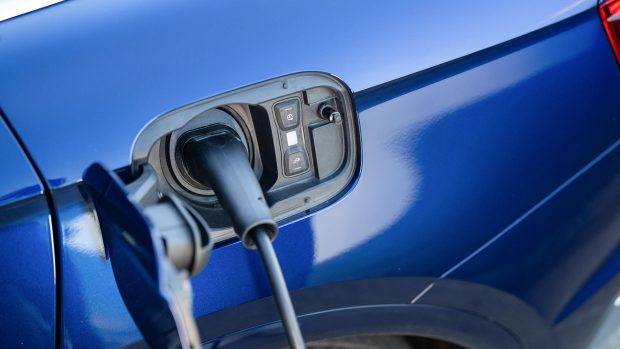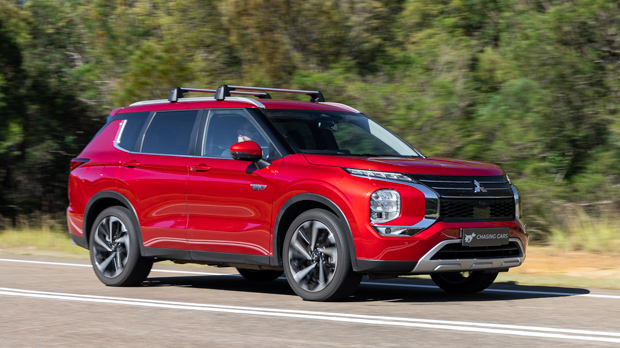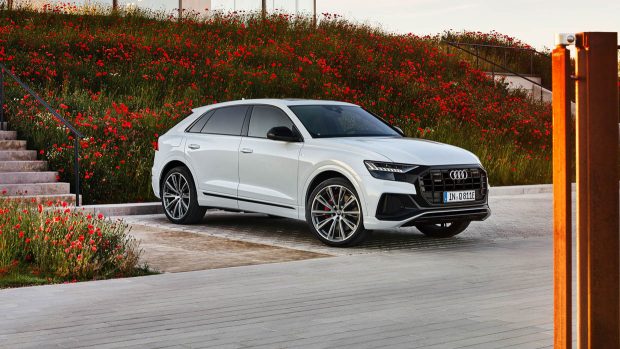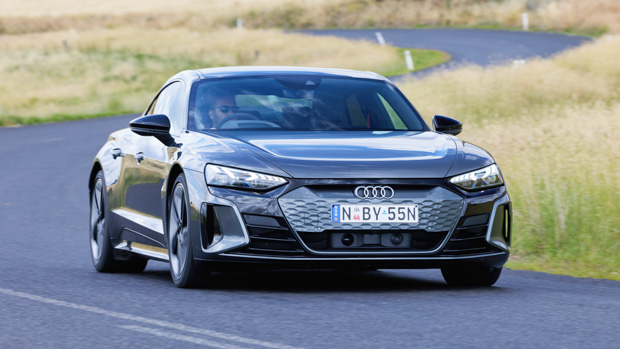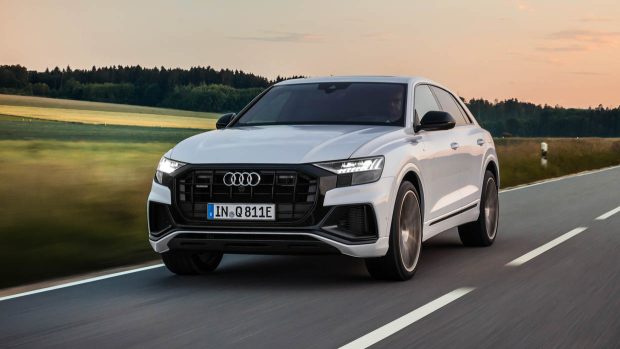-
Car Reviews
- All reviews
- Midsize SUVs
- Small cars
- Utes
- Small SUVs
- Large SUVs
- Large cars
- Sports SUVs
- Sports cars
- Vans
Latest reviews
- Car News
-
Car Comparisons
Latest comparisons
- Chasing Deals
Cynics write off PHEVs as a awkward stop-gap to full electrification but Audi Australia says the technology hits the sweet spot for the current times
Audi Australia has thrown its support behind plug-in hybrid (PHEV) vehicles and defended the technology’s merits – suggesting PHEVs are not simply a band-aid solution for the transition to fully electric vehicles.
Speaking at the launch of the Audi Q5 55 TFSIe plug-in hybrid midsize SUV, brand executives backed PHEV tech.
It was confirmed that at least one more Audi PHEV will be released in Australia in 2023 in the form of the Q8 60 TFSIe large SUV – and flagged that more Audi hybrids could follow.
Audi Australia’s head of product planning Matthew Dale said PHEVs held the unique ability of providing considerable performance benefits alongside electric only range – and won’t see you hunting for an EV charger when you hit the open road.
“A lot of people see [PHEV technology] as a transitional step. We see it as a complement to the range,” he said.
Dale said there has been demand for PHEVs in Australia but not always the supply of new models. However, it was now the right time to provide a third option for buyers considering a fully electric or traditional (petrol or diesel) combustion-style vehicle.
While commonplace in Europe for decades, PHEVs have remained a low-volume segment in Australia, though in recent years Peugeot, Kia and BMW have sold PHEVs locally, and Mitsubishi has been particularly successful with two generations of its Outlander PHEV midsize SUV in Australia.
Green shoots for PHEV technology are appearing in the heavier-duty segment, with Ford and Volkswagen set to introduce plug-in hybrid versions of their ute products in the coming years – based on Ford engines.
Australia has significantly trailed European adoption of PHEVs due to considerable differences in emissions regulation policy. European laws incentivised PHEV take-up based on theoretical consumption levels based on being charged regularly – even if buyers didn’t do this.
Upon introduction of the Sorento PHEV in 2021, Kia Australia said it perhaps wasn’t worth the campaigning it would take to help the technology gain widespread notoriety, especially with full electrification right around the corner.
Chasing Cars has previously reported the pros and cons of living with the technology over a longer-term period with the Mitsubishi Outlander PHEV.
PHEVs double-dip in the powertrain department with a sophisticated engine and an expensive battery and motor combination – normally making them much more expensive than the equivalent non-hybrid model.
But improvements in battery affordability spurred on by EV popularity could make PHEVs substantially cheaper, while future emissions regulations could spare cars capable of zero-emissions running of additional taxes.
That situation hasn’t happened yet, and as such, the PHEV version of the Audi Q5 two-litre is still considerably more expensive than the petrol-only version, with a huge $20,100 gap between the 45 TFSI Sport and the 55 TFSIe hybrid variants.
Audi is enthusiastic that this price gap could decrease in future.
“In terms of battery technology, we’ve seen over the last three to five years that it has really moved quite rapidly, especially in lithium-ion technology,” he said.
“[Both EVs and PHEVs] work on prismatic cells that go into modules. So those prismatic cells are where your cost base is in terms of the battery.”
“So there is an opportunity once that becomes more mainstream for the cost to come down over time, like any technology.”
This month Audi has released its Q5 55e PHEV which is priced from $102,900 before on-road costs, putting it between the flagship SQ5 ($110,875) and the petrol-powered 45 TFSI Sport ($82,800).
It will follow suit later this year with the Q8 60 TFSIe, which slots beneath the SQ8 performance model and the rest of the petrol and diesel range, though a PHEV version of the closely related Q7 has previously been ruled out due to its lack of seven seats.
Asked if there was more room for PHEVs in Audi’s Australian lineup, Dale was confident there was “definitely scope in the future to bring further vehicles”.
More specifically, Dale expressed his wish that a PHEV variant would return for the next generation of Q5, which is expected to arrive in Australia in the near future.
Latest news
About Chasing cars
Chasing Cars reviews are 100% independent.
Because we are powered by Budget Direct Insurance, we don’t receive advertising or sales revenue from car manufacturers.
We’re truly independent – giving you Australia’s best car reviews.
